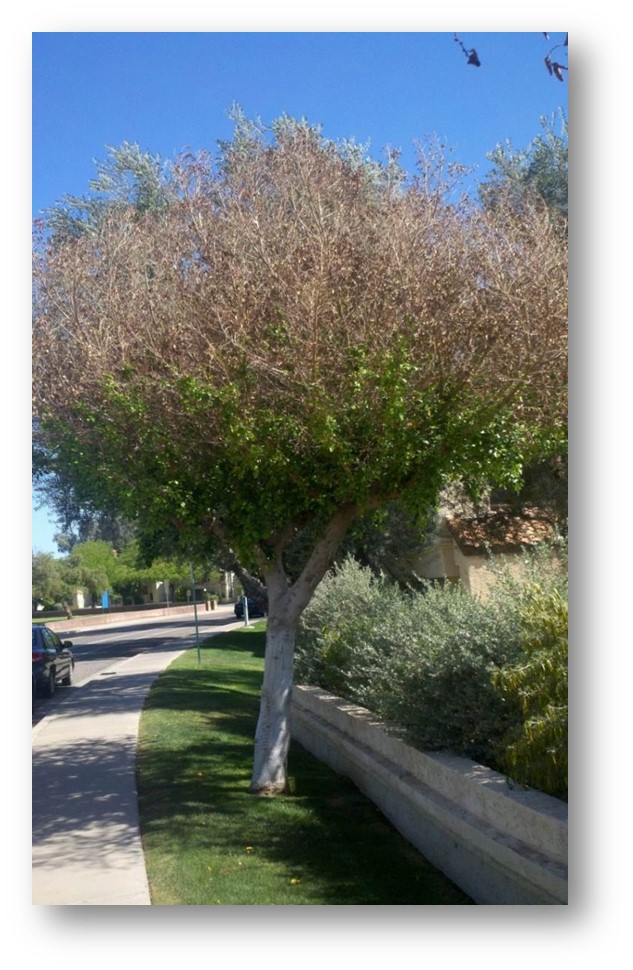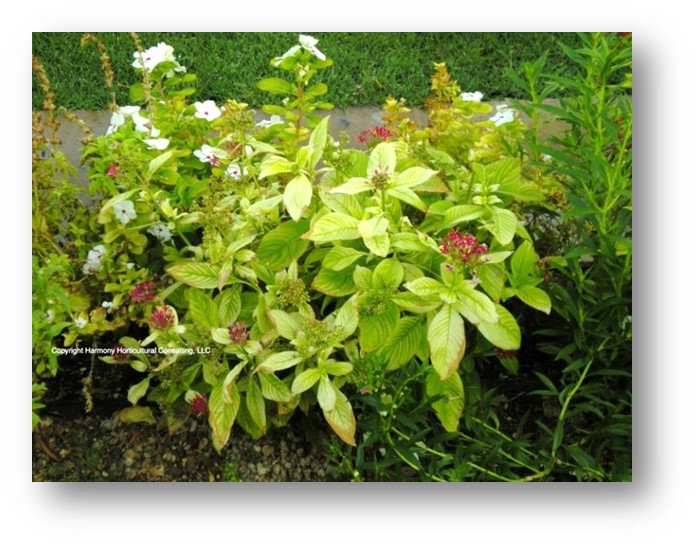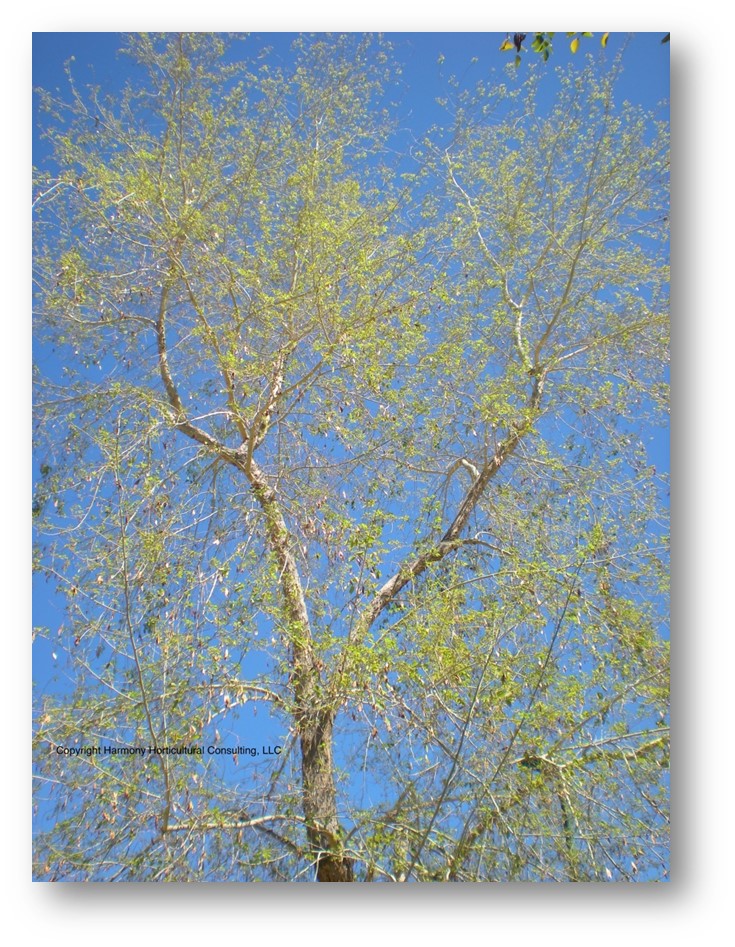Plant Problems in the Landscape – Abiotic Disorders
After our cool and moist February, the month of March is sure to bring warmer temperatures and a flush of spring growth as our landscape plants wake up after their short winter naps. Some plants, however, may just not seem right. Your landscape professional can help identify and treat plant problems that may arise. As part of ALCA’s Arizona Certified Landscape Professional program, we offer “Plant Problem Diagnosis” workshops for landscape professionals to further their education.
Here are some of the more common abiotic causes of plant problems in our area that you may see this time of year:
Frost Damage - Now that the danger of frost has passed, you are likely to see your landscape professional pruning away the unsightly leaves and branches that were touched by frost this winter.

Micronutrient Deficiencies/Imbalances - Your landscape professional can help you determine if the soil nutrients are present in sufficient amounts in the soil, and if so, if other environmental factors such as high soil pH, low soil temperatures or moisture levels are inhibiting the uptake of the minerals to the plant.

Overwatered or Soil Compaction Conditions - It is easy to overwater plants in the winter, when they aren’t using as much water and the evaporation of soil moisture is not as high due to low temperatures and higher atmospheric humidity. Your landscape professional may check the soil for soil moisture levels and watering depth using a soil probe or other tool, and can check for soil compaction and percolation issues as well.
